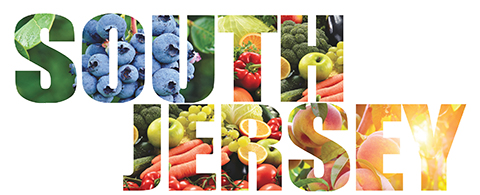“Jersey is a great region,” enthuses Nardelli. “We’re right here next to the Atlantic Ocean which gives us warmer temperatures.” Adding in the excellent soil, climate, and access to major cities “gives us a really great foothold to ship produce.”
John Molinelli, president of John Molinelli, Inc., also sees the locally grown trend as a benefit to growing in the area. “Fresher is one of the biggest selling points,” he confirms, with so many urban and suburban consumers close by (including 6 million people in Philly, 11 million in New York City, and 9 million in New Jersey).
FRESH FORUM
Are your suppliers or customers concerned about the new Food Safety Modernization Act rules going into effect this year?Ryan Flaim,
R&R Flaim Next Generation Produce, LLC
I’m concerned as a family farm. We’re not a big California grower that can absorb the costs; the regulations will really hurt. Food safety and the responsibilities we have with chain stores are very costly because of paperwork… It’s important, but it eats into so much of an already-slimming bottom line because of overhead going up.Dave Budd,
Gloucester County Packing Company
With our own packinghouse, we’ve done third-party audits for a long time. The important issue is that food safety is customer driven and customers want it now. They could care less what the FDA [Food & Drug Administration] is doing; they want the highest level immediately. Many of our customers have their own auditors and inspectors and we’ve encouraged all of our growers to get certified.Bob Von Rohr,
Sunny Valley International, Inc.
All of the growers we represent domestically have to be GFS Primus certified for food safety and traceability, which is top of the line. With the import deal, [our suppliers] are GlobalGAP, and we’re still working out the bugs.John Molinelli,
John Molinelli, Inc.
We follow food safety guidelines for the growers we use; we’re really pretty strict on what we do. It’s going to be a little tough to get everyone acclimated, but we’ll be keeping a close eye on where we’re supposed to be.Al Murray,
New Jersey Department of Agriculture
They are, and it’s a complaint. We have a partnership with Rutgers University, our agriculture university in the state. We do the audits, they do the training. We’ve trained over 4,000 in food safety and were the first state to be certified by the USDA to do food safety audits. Our farmers are poised for the Food Safety Modernization Act; they don’t like it, but we’re ready to go. Nobody likes to have the do the paperwork, but if they’re going to sell fresh fruit and vegetables, then they have to follow these requirements.Thomas Sheppard,
Eastern Fresh Growers, Inc.
Customers are a lot more intense [about food safety] than the legislation coming along. It’s been voluntary, but we’ve been doing it because our customers require it. It’s not going to be new to us.Bill Nardelli,
Nardelli Brothers, Inc.
We’ve been doing USDA and Primus for many years with our company and shipping facilities. We’re initiating and already practicing many of the requirements, so it will be a very smooth transition.Tim Wetherbee, New Jersey Blueberry Industry Advisory Council & Diamond Blueberry
There’s some concern; I don’t think it’s anything we can’t handle… I look at it as a plus because it helps ensure a better and safer product. We’ve come to realize it’s as good for us as it is for the consumer.
Due to New Jersey’s central location in serving multiple metropolitan areas, the state is highly multicultural, and the produce output reflects this diversity. Murray says New Jersey has the second largest Cuban population outside Miami, with growers producing Cuban vegetables alongside other culturally-influenced commodities to meet the climbing de-mand of expanding African, Portuguese, and Asian markets.



